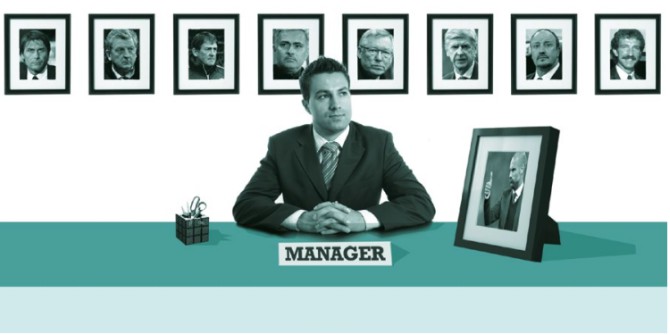
Over the last decade, our approach to gender inequality in the UK workplace has remained relatively static. We’ve pitched the business case for change, tried to transform mindsets with diversity and unconscious bias training, and done our best to influence the leadership pipeline with development and mentoring programmes.
In 2017, I wrote about the urgent need to change tack. The UK’s Hampton Alexander Review had highlighted the stalling progress of women in leadership, and it spoke volumes that the so-called ‘best practices’ above did not align with the evidence base for effective action. Instead, I introduced ‘the behavioural approach’, spearheaded by some of the world’s foremost academic thinkers on inclusion. It drew heavily on the work of leaders like Professors Iris Bohnet at Harvard, Jennifer Eberhardt at Stanford and Sarah Kaplan at Rotman Management School, who view inequality as an innovation problem and urge us to underpin our efforts with experimentation and behavioural insight.
As of today, the most influential employers in the UK have not embraced the potential of the behavioural approach, despite their insistence that gender equality remains a ‘strategic priority’. A glance at the Gender Pay Gap reporting of the FTSE100 reveals that the stubborn pattern of business case, diversity training and women-specific development programmes has not been dislodged. It’s a difficult trend to comprehend as the UK drops in the World Economic Forum’s Gender Equality Rankings.
The start of a new decade, however, is a time for optimistic beginnings. My first article of 2020 will dwell on greener shoots:
Gender inequality at work – a behavioural approach
The behavioural approach is antithetical to the traditional way we think about workplace culture. It is experimental by nature and therefore open to null results. It ‘thinks small’, improving precise components of an experience or decision-making process rather aiming for giant, transformational leaps. It is finally driven by collective enterprise rather than the glory of the individual leader or institution. Progress comes from the minds of many, who share and build upon each other’s work.
These principles do not sit comfortably in many organisations, particularly those who feel exposed by the stark homogeneity of their leadership teams. The instinctive answer is to shout about how much they care about change; the harder alternative is to face up to the uncertainty of addressing it meaningfully. This has often meant slow and frustrating beginnings for applied behavioural science.
But the seedling days are over, and the roots have taken hold. The behavioural approach starts 2020 with bold aspirations, underpinned by 1) intellectual hubs that are actively engaging a non-scientific audience and 2) pioneering practitioners willing to try something new. Together, they outline a promising roadmap for the decade ahead:
1. Gender equality research hubs
Academics are often accused of working in an ivory tower. Not so with a new generation of research hubs, focused on practical guidance for the people who can put it to good use. Here are three of the best from the UK and the US:
The Gender and Behavioural Insights Programme (GABI). In 2017, the UK Government invested £2m in GABI, a partnership with the Behavioural Insights team. Each policy area involves several randomised controlled trials. Check out: Actions To Close The Gender Pay Gap, a summary of evidence-based interventions released in 2019.
The Harvard Kennedy School Women and Public Policy Program (WAPP). A global leader in behavioural insight, WAPP creates ‘organisational designs that can promote women’s empowerment, overcome gender bias and provide equal opportunities”. Check out: The Gender Action Portal, a compendium of research focused on an experimental approach to policy evaluation.
The Institute for Gender and the Economy (GATE) at the Rotman School of Management. Founded to promote greater understanding of gender inequalities and how they can be remedied, GATE is a world-leading research and engagement hub. Check Out: The GATE Explainers, bite-sized summaries on topics including work-life balance, masculinity, quotas and parental leave.
2. Pioneering ‘diversity and inclusion’ (D&I) practitioners
The impact of these intellectual hubs will be defined by the response from HR and D&I teams. The next frontier is to develop their capability to operationalise the research and to make an active contribution through field experiments. Our inclusion practice at MoreThanNow, led by Sarah Minor-Massy, has been working to further these aims.
Bridging the Capability Gap. Organisations can look to higher education programmes like those from LSE, UCL and Warwick, or shorter initiatives such as our own three-day course on behavioural science. In 2019, we designed this programme based on team over individual learning, which has quickly created an active base in public organisations such as Transport for London (TfL) and the Cabinet Office and FTSE 100 organisations including BT and Phoenix Group.
Field Experiments. Behavioural science isn’t as simple as adopting more effective practices. The cutting-edge of the discipline is testing promising interventions in the reality of an organisational context. Here are some questions we’ve begun to answer with the power of the randomised controlled trial:
- How do you encourage employees to voluntarily submit demographic data? (In partnership with TfL).
- What’s the best way to encourage women to explore internal mobility opportunities? (An ongoing partnership with Ericsson).
- How can we attract more women into careers in technology? (An ongoing partnership with BT, with a preliminary independent experiment here).
Long-Term Partnerships. Ultimately, we would like to see large organisations developing their own research hubs on workplace culture and inclusion; places where academic partnership is commonplace and deeply symbiotic.
I hope this time next year my fourth article will explore that trend. At MoreThanNow, we will be contributing through our new strategic partnership with BT, built around a series of experiments on inclusion over the next twelve months.
Our wish is that pioneering partnerships like this, and the GABI programme above, will inspire more of the UK’s most influential employers to invest in their own research and evidence-based approach. The lynchpin is that the gap between academia and practice becomes ever smaller; in my mind, a goal synonymous with progress on gender equality. It’s the only way we’ll find out what works, after all.
So, here’s to a productive decade. There’s lots to do!
♣♣♣
- The post expresses the views of its author, not the position of LSE Business Review or the London School of Economics and Political Science.
- Featured image by Tim Mossholder on Unsplash
- When you leave a comment, you’re agreeing to our Comment Policy
 James Elfer is the founder of MoreThanNow, a behavioural science practice for the workplace.
James Elfer is the founder of MoreThanNow, a behavioural science practice for the workplace.






j’ai pas compris de quoi il s’agit réellement concernant la théorie comportementale